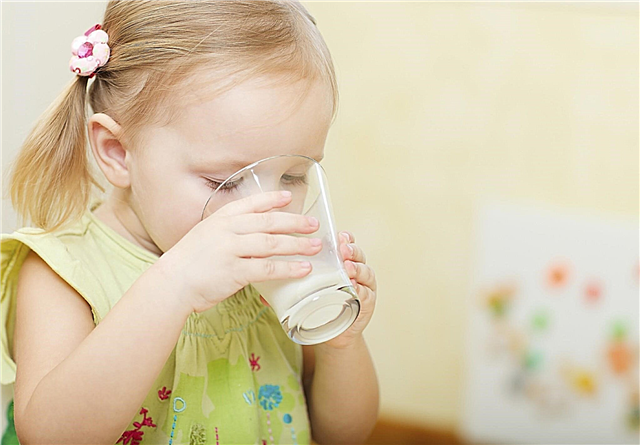Newborns are born with a poorly developed digestive system. In the first weeks of life, they adapt to new living conditions. Almost all babies spit up after feeding. This is normal for babies under 1 year old. However, the process can also be pathological. In this case, you should immediately contact your pediatrician.

Baby in mom's arms
How to tell the difference between regurgitation and vomiting in an infant after feeding
Regurgitation, or reflux, occurs in 80% of newborns. This is due to an underdeveloped feeding tube, overeating or air being swallowed while nursing. In this case, the volume of the regurgitated liquid should not exceed 2 tbsp. It's easy to check. For this, 2 tablespoons are poured onto the diaper. tablespoons of water and compare the size of the spots. If they are the same, then this is the norm. If the spitting spot is much larger, then it is vomiting.
Regurgitation occurs no later than an hour after feeding. If the volume of fluid is greater, then it is considered vomiting. At the same time, the baby experiences discomfort, cries, and does not gain weight well. The baby's skin becomes dry, the baby does not sleep well. Vomiting can be a fountain and repeated.
Important! If signs of vomiting are found, you should urgently consult a pediatrician for advice.
How to get rid of regurgitation
There are some helpful tips to prevent your baby from regurgitating frequently. Pediatricians and experienced specialists talk about them.
What to do before feeding
It is recommended to lay it on the tummy before starting to feed the newborn. Hold in this position for several minutes. It stimulates the processes of digestion and absorption of breast milk and formula.
Feed so the baby does not swallow air
A common cause of regurgitation is the swallowing of air by a baby. Milk rises to the surface with the bubbles. Therefore, doctors advise feeding babies in such a position that the head is slightly higher than the body. This will help keep food in the baby's stomach.
What to do after feeding
After the baby has eaten, he is taken in his arms, fixed in an upright position on the shoulder of the mother. Wear it for 10-15 minutes. This will help air bubbles, excess milk escape and retain the required amount of food in the stomach of the crumbs.

Mom's baby on her knees
Possible causes of vomiting
Why the child is vomiting is a difficult question. Sometimes doctors cannot make the correct diagnosis on the first try. The reasons are associated with dysfunctions of internal organs or infection. Vomiting is single and systematic. In the first case, treatment may not be needed, in the second, the cause of frequent vomiting should be found out and eliminated.
Important! Most often, systematic vomiting with a fountain in an infant after feeding with a mixture suggests that it does not suit him.
Why does the child vomit like a fountain
Vomiting in a newborn after breastfeeding is often associated with neurological causes. They usually appear vividly by 2 weeks of age. The reasons for this phenomenon:
- Perinatal encephalopathy. This is a neurological disorder that is accompanied by restless behavior of the child and frequent vomiting in a fountain.
- Congenital hydrocephalus. There is an accumulation of cerebrospinal fluid in the cranium, it squeezes the brain, the baby constantly cries, is capricious, refuses to eat. After feeding with milk or a mixture, he vomits with a fountain. Food is practically not digested, the baby is not gaining weight well.
- Other diseases of the nervous system. Incomplete development of the central nervous system, lack of blood circulation in the brain, and postpartum trauma are usually found. They become the cause of constant vomiting. It occurs after each large feed.
- Gastrointestinal problems. May indicate the presence of a hernia in the diaphragm and a narrowed opening in the duodenum. Milk will not be able to enter the small intestine in the required volume, vomiting occurs.
- Infectious diseases. Even after discharge from the hospital, there is no complete guarantee that the baby cannot get sick. Vomiting is usually accompanied by a high fever.
- Hereditary diseases. This condition occurs in phenylketonuria and adrenogenital syndrome.
Important! With systematic vomiting, you should undergo a complete examination by a neurologist, gastroenterologist and infectious disease doctor.

Newborn baby boy in a hat
Why vomiting is dangerous for newborns
If the newborn has vomited after being fed with a fountain of milk, then you should worry about the presence of infection and the consequences. Vomiting is dangerous for the child's body:
- dehydration;
- underweight;
- dry skin and mucous membranes;
- restless sleep;
- stool disorders, frequent constipation.
In babies up to three months old, dehydration can be almost fatal. This is reflected in the work of internal organs and the brain. Don't wait, it's better to play it safe and call an ambulance.
When to see a doctor
If the newborn, after feeding, vomited with a fountain once, and the attacks did not recur during the day, then there is nothing to worry about. If the baby vomits constantly, then you should pay attention to secondary symptoms. Reasons why you should urgently see a doctor:
- temperature rise above 37.50;
- discoloration of the skin;
- constant crying;
- constipation;
- rare urination;
- drowsiness;
- diarrhea;
- weakness;
- refusal to eat;
- there are streaks of blood in the vomit;
- vomit contains gastric juice;
- attacks occur more often than once a day.
Any of these symptoms could indicate a baby's health problem. After the examination, the doctor will prescribe temporary therapy until an accurate diagnosis is made and a course of treatment is drawn up.
Important! Milk vomiting should not be ignored.
First aid at home
If a baby vomits after breastfeeding in the form of a fountain, then you need to raise it in a column, remove the vomit, call a doctor or an ambulance to the house. While they are on the way, the mother needs to measure the body temperature, try to calm down the child. It is advisable to lay it on elevated surfaces so that the head is slightly higher than the body. It is prohibited to give any medication without consulting a doctor. Newborns are prescribed very low doses of drugs.

Newborn in the arms of a column in yellow
How to help babies
If the baby has bloated, then you should pick it up and rub it in a column. If the attack is one-time, then the baby will remain vigorous and cheerful. The newborn is calmed and observed for a day. If vomiting recurs, then consult a doctor. It happens that the mother's milk is not suitable for the newborn, it is also examined in the laboratory.
Helping formula-fed / mixed-fed children
Vomiting in a newborn after formula feeding signals that it is not suitable for him. It is worth changing the manufacturer or type of dairy product. It also happens that the baby does not digest cow protein, but the goat is well tolerated.
Important! Anti-vomiting mixtures, antireflux, are of a therapeutic nature, they can only be prescribed by a pediatrician.
How to help children who have already been introduced to complementary foods
If the baby is already six months old, he began to eat complementary foods, and vomiting is still continuing, then the amount of adult food should be gradually increased, milk or formula should be given less. This will help to get rid of regurgitation by the year.

Kid with a spoon in his mouth
Prevention measures
As a preventive measure, it is advised to adhere to simple recommendations:
- lay the baby on his stomach before feeding;
- do not pull the chest out of the mouth sharply;
- use anti-colic bottles;
- wash and sterilize all dishes;
- after feeding, carry the baby in a column;
- buy formula only prescribed by a pediatrician.
The health of a child in infancy is very important for his future normal development. All problems should be eliminated at a young age, as they can be the causes of illness in an adult. Frequent regurgitation in some cases is of a pathological nature, requiring examination and prescribing a course of treatment.



